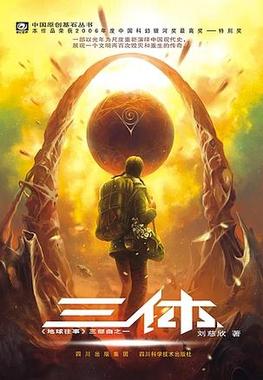
"Weakness and ignorance are not barriers to survival, but arrogance is."
-Three Body Problem
Of the Three Body Problem trilogy, I immensely enjoyed reading the first book and had to drag my way across the other two.
The first book has a very beautiful structure. It is intensely gripping with very honest, well-formed characters, it jumps across various timelines introducing us to the Chinese cultural revolution along the way, has a whodunit mystery, creates great sci-fi worlds - a complete package. The similarities to Asimov’s Robot series and to film noir, two of my favorites, are quite obvious.
The first book is very grounded. It does very well what all good science fiction attempts to do: to examine how humans might behave when transplanted into a different universe, a distorting mirror which exaggerates one particular aspect of our society. The book takes it even further, it is not just set in a fictional world but the fiction itself is a big part of the mystery.
My favorite thing about the book(s) is their very interesting take on space travel. I never thought about this before, but a lot of popular sci-fi books openly cheat when it comes to space travel. Take Star Trek or Star Wars, for example. The distance between the Sun and the nearest star is more than 4 light years. Imagine how boring Star Trek would be if every time Starship Enterprise had to go on a mission it took at least 4 years, more realistically decades or even centuries, to get there. The spaceships in both of these series are equipped with some means to exceed the speed of light, using either wormholes, warp speed or some such artificial trickery. Even Asimov does this in his Foundation series. Take away these gimmicks and you got yourself a whole new kind of the space genre, something I had never encountered before.
In the beginning, the Three Body Problem tries to be very candid about this problem, but later it too starts to cheat. In fact, it ends up cheating much more seriously and that’s when I think the book starts to falter and loses its nuanced approach. There’s a term used in improv to describe a scene that becomes just too crazy to sympathize with - going to crazy town and that’s exactly what happens to the books.
Another thing I really dislike about the second and the third book in the trilogy is their over-dependence on accidents and singular, almost heroic characters, to resolve tensions and reveal mysteries. In many ways, sci-fi is an ode to science and while there are always likable protagonists and characters in sci-fi books, the main protagonist is always the science, and while the history of science is riddled with serendipities, these serendipities are less like finding Lothlorien after a treacherous journey through Moria and more like discovering gold in a piece of rock. I think in the latter two books Liu tries to be too grand and ends up losing the truth in the story.
Having said this, if you think of the second and third books as fantasy rather than sci-fi then the books become extremely thought-provoking, almost an epic saga. There’s even a religious, spiritual, and philosophical component to them. In fact, I would not be surprised if the Liu was somehow influenced by some kind of Asian philosophy like Taoism.
Coming back to the first book, I highly recommend it. It’s definitely one of the best sci-fi + mystery books I’ve ever read.